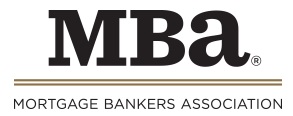WASHINGTON, D.C. – April 15, 2011 – (RealEstateRama) — Henry V. Cunningham Jr., CMB, Mortgage Bankers Association (MBA) board member and chairman of the MBA Residential Board of Governors, testified today on behalf of MBA before the House Financial Services Committee Subcommittee on Capital Markets and Government Sponsored Enterprises at a hearing on, “Understanding the Implications and Consequences of the Proposed Rule on Risk Retention,” providing the perspectives of both the commercial and residential real estate finance markets.
Below is Mr. Cunningham’s oral statement before the panel, as prepared for delivery.
“Thank you, Chairman Garrett and Ranking Member Waters. It is no exaggeration to say that the rule we are examining today will have profound effects on our housing and real estate recovery and determine who can and cannot buy a home and the future of the commercial real estate public debt markets, for years to come. If finalized in its current form, the result will be much higher costs for the vast majority of consumers, and diminished access to credit for many others.
Let me speak first to the most controversial part of the rule: the qualified residential mortgage (QRM) exemption. Recognizing that loans subject to risk retention would carry higher costs, Congress wisely instructed regulators to exempt safer products from the requirement. While Congress left some of the key decisions to regulators, your intent was clear: to require sound underwriting and proper documentation while excluding non-traditional risky features.
Yet regulators took this authority and opted to exclude most mortgage products, making QRMs the exception instead of the rule. FHFA reports that less than one third of the loans purchased by Fannie and Freddie in 2009 would have met these requirements. This is all the more notable because 2009 was the most cautiously underwritten market in generations.
Let me bring this home to you.
I’m an independent mortgage banker operating in North Carolina– hardly the epicenter of the housing crisis. We ran an analysis on our 2010 book of business, and 58 percent of our purchase loans and 74 percent of our refinances would not have met the QRM standards. This is astonishing because 97 percent of our mortgages were fixed-rate.
Mr. Chairman, I’ve been in the mortgage business for 37 years. During this time, I’ve found that underwriting is an art, not a science. No one borrower characteristic will predict whether a loan will default.
Yet this rule hardwires some of the least flexible underwriting standards any of us have ever seen. The hardest hit would be first-time homebuyers, minorities, and middle class families, for whom the down payment requirement would be nearly insurmountable. The omission of mortgage insurance, which Congress specifically asked regulators to consider, is also troubling. And the debt-to-income ratios may exclude even more qualified borrowers than the down payment requirement.
The proposal raises several other major concerns. For instance, it’s not clear if the regulators reflected on the relationship between the QRM and FHA’s significantly lower 3.5 percent down payment requirement. The administration’s recent GSE white paper professed a preference for reducing the government’s footprint in housing finance and paving the way for a robust private mortgage market. The obvious contradiction between the QRM and FHA requirements will force more borrowers to seek FHA loans and takes us in the opposite direction.
Another controversial piece of this rule is the national servicing standards. If ever there was a regulatory overreach, this is it. Never in the year-long debate over risk retention were servicing standards proposed or discussed. Congressional intent couldn’t have been more clearly directed to origination practices, not servicing.
Moreover, servicing standards are currently being developed through separate regulations and will include requirements well beyond those contained in this rule. Respectfully, this is neither the time nor the place to insert these provisions.
MBA is also concerned that risk retention would apply for the life of the mortgage. Underwriting deficiencies typically emerge shortly after a loan is originated. Any requirement beyond this time will further constrain funds and increase costs to borrowers.
Equally important on the commercial side, MBA believes regulators, working within the confines of the Act’s requirements, have worked diligently to propose rules that would support our mutual goal of a responsible and vibrant CMBS market. MBA applauds the regulators for providing flexibility in the forms of risk retention and in supporting arms-length contractual agreements between issuers and originators when allocating risk. However, MBA will seek clarification, and in some cases modifications of the proposed rule, such as in the case of the Premium Capture Cash Reserve Account, which in its current form is unworkable. MBA will work with the regulators closely to ensure rules are in place that will not hamstring the CMBS market and will facilitate a responsible and vibrant flow of capital.
So where do we go from here, Mr. Chairman?
Considering the gravity of this rule, the many concerns it raises, and the nearly 200 questions embedded in it, MBA believes the comment period should be extended to permit a full discussion of the rule’s profound implications. We also strongly urge this rulemaking to be synchronized with Dodd-Frank’s “Qualified Mortgage” safe harbor.
Finally, we urge Congress to call on the regulators to recognize the enormous constraints the risk retention rule will put on homebuyers –especially the steep down payment and DTI requirements– and to come back with a more flexible approach to underwriting. We thank you for your interest in this important topic and look forward to your questions.â€
Mr. Cunningham’s full written statement to the panel can be found on www.mortgagebankers.org.
###
The Mortgage Bankers Association (MBA) is the national association representing the real estate finance industry, an industry that employs more than 280,000 people in virtually every community in the country. Headquartered in Washington, D.C., the association works to ensure the continued strength of the nation’s residential and commercial real estate markets; to expand homeownership and extend access to affordable housing to all Americans. MBA promotes fair and ethical lending practices and fosters professional excellence among real estate finance employees through a wide range of educational programs and a variety of publications. Its membership of over 2,200 companies includes all elements of real estate finance: mortgage companies, mortgage brokers, commercial banks, thrifts, Wall Street conduits, life insurance companies and others in the mortgage lending field. For additional information, visit MBA’s Web site: www.mortgagebankers.org.












